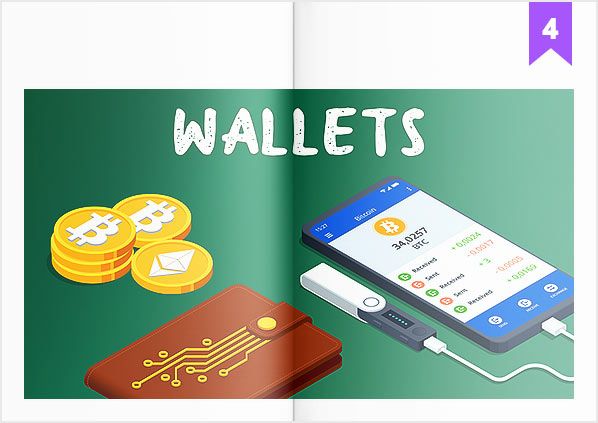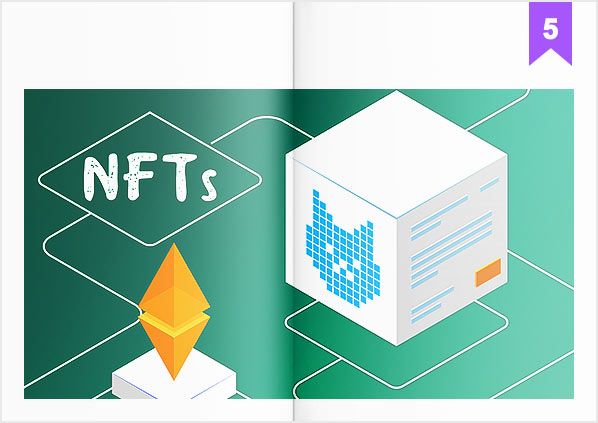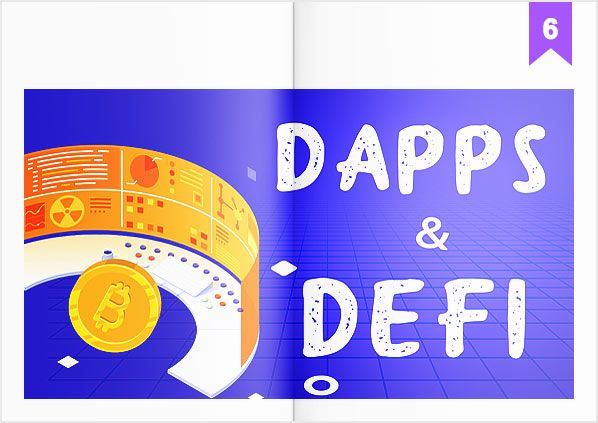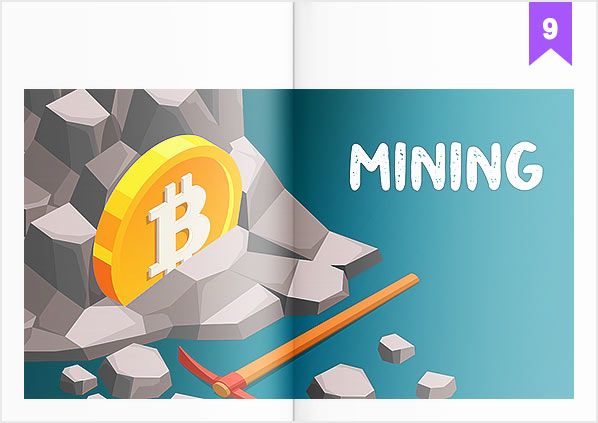smart contract</strong></a> standard that describes how to create, issue and deploy new <a href=https://www.bitdegree.org/"/crypto/learn/crypto-terms/what-is-token/">tokens based on the underlying <a href=https://www.bitdegree.org/"/crypto/learn/crypto-terms/what-is-blockchain/">blockchain./nWhat is a smart contract standard? </em>In the most basic sense, it outlines the rules that the smart contract must follow in order to actually use the underlying blockchain network. In addition, it outlines the application-level standards for blockchains that are designed for smart contracts and other <a href=https://www.bitdegree.org/"/crypto/learn/crypto-terms/what-are-decentralized-applications-dapps/">decentralized applications (<strong>DApps)</strong></strong></a>. </p>\n<p>By setting the standard, a smart contract must follow the standards in order to perform basic activities like token creation and transaction execution. The aforementioned token standards, <strong>name registries</strong>, library or package formats, and much more can all be a part of the smart contract standard.</p>\n<p>Smart contract standards are vital in the blockchain network because they effectively specify how to use the network. A strong standard can make communication between different smart contracts within the same blockchain network more efficient.</p>\n<p><a href=https://www.bitdegree.org/"https://www.bitdegree.org/crypto/buy-ethereum-eth/">Ethereum is now the most widely used blockchain for creating smart contracts, and it has built a number of standards to support diverse smart contracts. The <a href=https://www.bitdegree.org/"/crypto/learn/crypto-terms/what-is-ethereum-request-for-comment-erc/">Ethereum Request for Comment (ERC)</strong></a> is the most widely used token standard today, with variants such as <a href=https://www.bitdegree.org/"/crypto/learn/crypto-terms/what-is-erc-1155/">ERC 1155</strong></a>, <a href=https://www.bitdegree.org/"/crypto/learn/crypto-terms/what-is-erc-20/">ERC-20, <a href=https://www.bitdegree.org/"/crypto/learn/crypto-terms/what-is-erc-777/">ERC-777, <a href=https://www.bitdegree.org/"/crypto/learn/crypto-terms/what-is-erc-721/">ERC-721, and so on.</p>","level":"easy","meta_title":"What is Token Standard? Definition & Meaning | Crypto Wiki","meta_description":"Token Standard meaning: Token Standard - a subset of the smart contract standard that is frequently included to explain how to generate, issue, and deploy new tokens.","meta_keywords":null,"language":"en","created_at":"2022-03-31T12:25:04.000000Z","updated_at":"2022-05-13T14:32:24.000000Z","preview_url":"https://www.bitdegree.org/crypto/learn/crypto-terms/what-is-token-standard"},"prevSection":{"id":757,"original_id":null,"author_id":42,"translator_id":null,"title":"What is Tipset?","slug":"what-is-tipset","section":"T","keyword":"Tipset","status":"published","definition":"a set of blocks with the same height and parent tipset that makes up a blockchain.","content":"<p>A <strong>tipset</strong> is a set of <a href=https://www.bitdegree.org/"/crypto/learn/crypto-terms/what-is-block/">blocks that makes up a <a href=https://www.bitdegree.org/"/crypto/learn/crypto-terms/what-is-blockchain/">blockchain. Each block in a tipset has the same height and parent tipset. This term is mostly used to describe the blockchain of Filecoin. Since the <strong>Expected Consensus (EC)</strong> system of Filecoin is election-based and allows many <a href=https://www.bitdegree.org/"/crypto/learn/crypto-terms/what-is-miner/">miners to be elected leaders in a round, its consensus process is dependent on tipsets.</p>\n<p>This means that Filecoin (or any other similar system) allows multiple <a href=https://www.bitdegree.org/"/crypto/learn/crypto-terms/what-are-storage-miners/">storage miners</strong></a> to create blocks in a single <a href=https://www.bitdegree.org/"/crypto/learn/crypto-terms/what-is-epoch/">epoch, increasing network <a href=https://www.bitdegree.org/"/crypto/learn/crypto-terms/what-is-throughput/">throughput.
/nBesides, the use of tipsets to build a blockchain can also help with the security of the network. Since the weight of each tipset is proportional to the amount of storage it provides, any <a href=https://www.bitdegree.org/"/crypto/learn/crypto-terms/what-is-node/">node attempting to prevent legitimate blocks from being created must contend against the fact that consensus prefers heavier chains.</p>\n<p>Since decentralized storage systems inherently <strong>prioritize chains that offer more storage</strong>, the advantage of employing a tipset system is that miners will group together to promote the heaviest chain or the chain that is providing value. Due to the fact that lighter chains don't have the draw of larger storage power, they become <a href=https://www.bitdegree.org/"/crypto/learn/crypto-terms/what-is-orphaned-block-orphan/">orphan blocks</strong></a>.</p>\n<p>The tipset system of Filecoin is similar to <a href=https://www.bitdegree.org/"https://www.bitdegree.org/crypto/buy-ethereum-eth/">Ethereum in that it encourages members to collaborate and avoids wasting time by increasing chain throughput.</p>","level":"easy","meta_title":"What is Tipset? Definition & Meaning | Crypto Wiki","meta_description":"Tipset meaning: Tipset - a set of blocks with the same height and parent tipset that makes up a blockchain.","meta_keywords":null,"language":"en","created_at":"2022-03-31T10:51:29.000000Z","updated_at":"2022-05-13T14:32:24.000000Z","preview_url":"https://www.bitdegree.org/crypto/learn/crypto-terms/what-is-tipset"},"currentChapter":"T","currentSection":"what-is-token-issuance","chapterTitle":"T","readingLevel":"easy"},"url":"/crypto/learn/crypto-terms/what-is-token-issuance","version":"cdd198d50cbe5c9c21c9329d7c096ffc"}" class="container-fluid d-flex crypto-book p-0"> Crypto Terms: Letter T
What is Token Issuance?
Token Issuance MEANING:
Token Issuance -
the process of producing new tokens and adding them to a cryptocurrency's total token supply.
Let's find out Token Issuance meaning, definition in crypto,
what is Token Issuance,
and all other detailed facts.
In the most basic sense, token issuance is the process of producing new tokens and adding them to the total token supply of a cryptocurrency. Token issuance is usually governed by complex algorithmic calculations that estimate the number of tokens required for the blockchain ecosystem to operate effectively.
Token issuance has many forms that depend on cryptocurrency and blockchain. Besides, note that each cryptocurrency has a different total supply of tokens that is also calculated using complex algorithmic calculations.
It's essential for blockchain-based projects and cryptocurrencies to explain how their token issuing process works. For instance, the Bitcoin whitepaper specifies that there could only ever be 21 million coins. As a result, once the limit of 21 million tokens is achieved, Bitcoin will no longer be issued. Though other cryptocurrencies have chosen not to have a supply limit.
Token issuance can also refer to tokenization, which involves adding an asset from outside of the cryptocurrency's ecosystem to the blockchain via a crypto token. In such instances, token issuance becomes the process of establishing a token that represents an external asset rather than one that belongs to a coin.
To establish agreement across the network of nodes, several consensus techniques use a combination of token issuance and token burning. Token burning is the polar opposite of token issuance because in this process tokens are destroyed irreversibly.
The regulations that govern token issuance on various projects assist investors in deciding whether or not to engage in the project. Besides, these regulations might have an effect on the value of crypto assets. When the blockchain is near to exceeding its maximum supply limit, cryptocurrencies with a fixed maximum supply often experience price increases.









